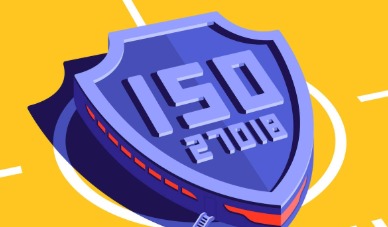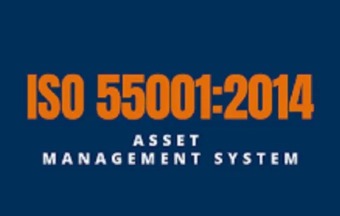In today’s digital-first world, the cloud has become the backbone of global business operations. Organizations across industries increasingly rely on cloud services to store, manage, and process data efficiently. However, with this convenience comes a growing concern — the protection of personal data. As cyber threats, data breaches, and privacy violations rise, maintaining the confidentiality, integrity, and trustworthiness of personal data has become a top priority.
To address these concerns, the International Organization for Standardization (ISO) and the International Electrotechnical Commission (IEC) developed ISO/IEC 27018:2025, an international standard specifically designed to protect personal data in cloud environments. This standard builds upon the widely recognized ISO/IEC 27001 framework for Information Security Management Systems (ISMS), providing additional guidance for cloud service providers that handle personally identifiable information (PII).
What is ISO/IEC 27018:2025?
ISO/IEC 27018:2025 is the latest version of the global standard that sets out best practices for protecting personal data in cloud computing. It focuses on the security and privacy controls required when cloud service providers (CSPs) act as PII processors — meaning they process data on behalf of another organization (the data controller).
The 2025 edition represents an updated and refined version of earlier releases, incorporating modern privacy expectations, regulatory updates like GDPR, and evolving cloud security practices. It aligns closely with ISO/IEC 27002:2022, ensuring consistency with the latest information security control frameworks.
Essentially, ISO/IEC 27018 provides a code of practice that helps cloud providers ensure that personal data is handled ethically, securely, and transparently — reinforcing customer confidence in cloud-based services.
Why ISO/IEC 27018:2025 Matters in Today’s Cloud Environment
As organizations move their operations to the cloud, they often rely on third-party vendors to store or process sensitive data. This introduces a layer of dependency and risk — especially when the service provider has access to large volumes of personal information.
In this environment, ISO/IEC 27018:2025 plays a vital role by:
-
Establishing clear guidelines for data protection responsibilities between cloud providers and their customers.
-
Ensuring transparency in how data is processed, stored, and accessed.
-
Providing a framework for accountability and compliance with privacy laws and international data protection regulations.
-
Helping organizations demonstrate due diligence in safeguarding personal data from misuse or unauthorized access.
This standard is particularly valuable in regions where data privacy laws (such as the General Data Protection Regulation (GDPR), CCPA, or India’s Digital Personal Data Protection Act, 2023) impose strict requirements on how organizations handle personal data.
Objectives of ISO/IEC 27018:2025
The main objectives of ISO/IEC 27018:2025 are:
-
To protect personally identifiable information (PII) processed in cloud computing environments.
-
To build trust and transparency between cloud providers and customers.
-
To support compliance with national and international data protection laws.
-
To reduce the risk of privacy breaches and unauthorized data usage.
-
To strengthen governance over data processing activities.
Key Principles of ISO/IEC 27018:2025
ISO/IEC 27018:2025 is founded on a set of principles that guide how cloud service providers should manage personal data:
-
Consent and Choice:
Cloud providers must ensure that data is processed only with the customer’s consent and within the scope of agreed purposes.
-
Purpose Limitation:
Personal data should only be used for legitimate business purposes specified in the contract.
-
Transparency:
Providers must be transparent about their data processing practices, including who has access to data and where it is stored.
-
Data Minimization:
Only the minimum amount of personal data necessary for service delivery should be collected and processed.
-
Security of Processing:
Appropriate technical and organizational measures must be implemented to protect data from loss, unauthorized access, or alteration.
-
Accountability and Responsibility:
Providers should clearly define roles and responsibilities related to data protection and privacy.
-
Compliance and Auditability:
Cloud service providers should maintain logs, records, and reports to demonstrate compliance with privacy obligations.
Core Requirements of ISO/IEC 27018:2025
The 2025 edition emphasizes both technical and operational controls to ensure effective data protection. Some of the key requirements include:
-
Data Subject Rights: Enabling individuals to access, correct, or delete their personal data when requested.
-
Information Security Policies: Establishing and maintaining policies that define how data is protected.
-
Encryption and Anonymization: Using cryptographic measures to safeguard personal data during transmission and storage.
-
Third-Party Management: Ensuring that subcontractors and third parties follow equivalent privacy and security practices.
-
Incident Management: Implementing structured processes for detecting, reporting, and responding to data breaches.
-
Data Return or Deletion: Ensuring that personal data is securely deleted or returned upon contract termination.
-
Staff Awareness and Training: Educating employees on privacy obligations and secure handling of personal information.
Benefits of Implementing ISO/IEC 27018:2025
Achieving compliance or certification with ISO/IEC 27018:2025 offers significant benefits to both cloud service providers and their customers:
-
Enhanced Customer Trust:
Certification demonstrates that the provider takes data privacy seriously, fostering greater confidence among clients and users.
-
Regulatory Compliance:
It supports compliance with global privacy regulations such as GDPR, HIPAA, and other data protection laws.
-
Competitive Advantage:
Certified cloud providers stand out in the marketplace by showcasing their commitment to secure and ethical data handling.
-
Reduced Risk of Data Breaches:
Through strong encryption, access control, and monitoring, the standard helps minimize vulnerabilities and prevent breaches.
-
Operational Efficiency:
ISO/IEC 27018 streamlines privacy management processes and integrates seamlessly with existing ISO 27001 systems.
-
Improved Transparency and Accountability:
Customers gain greater visibility into how their data is processed, stored, and protected.
-
Global Recognition:
As an internationally recognized standard, ISO/IEC 27018 strengthens an organization’s credibility and global compliance posture.
Who Should Adopt ISO/IEC 27018:2025?
ISO/IEC 27018:2025 is primarily intended for cloud service providers who process personal data on behalf of clients. However, its guidance is also valuable for:
-
Cloud storage and SaaS providers
-
IT and data processing companies
-
Managed service providers (MSPs)
-
Telecommunications and data hosting firms
-
Organizations outsourcing data processing activities
Even cloud customers can benefit from understanding ISO/IEC 27018 principles, as it enables them to evaluate and select providers that align with robust privacy practices.
How ISO/IEC 27018:2025 Works with Other Standards
ISO/IEC 27018:2025 is part of the broader ISO/IEC 27000 family of information security standards. It complements:
-
ISO/IEC 27001 – Information Security Management Systems (ISMS)
-
ISO/IEC 27002 – Code of Practice for Information Security Controls
-
ISO/IEC 27701 – Privacy Information Management Systems (PIMS)
Together, these standards form a comprehensive framework that helps organizations manage both information security and privacy effectively. ISO/IEC 27018 specifically focuses on public cloud privacy controls, making it especially relevant in modern digital ecosystems.
Steps to Achieve ISO/IEC 27018:2025 Certification
Implementing ISO/IEC 27018 involves the following key steps:
-
Gap Analysis: Assess current cloud data protection practices against the requirements of the standard.
-
Policy Development: Establish or update privacy and security policies to meet compliance needs.
-
Risk Assessment: Identify data privacy risks and determine appropriate mitigation strategies.
-
Implementation: Apply necessary technical and organizational measures to protect PII.
-
Training and Awareness: Ensure staff understand their roles in maintaining privacy controls.
-
Internal Audit: Conduct audits to verify compliance and readiness for certification.
-
Certification Audit: Undergo an external audit by an accredited certification body.
Conclusion
As cloud computing continues to dominate the digital landscape, ensuring the privacy and protection of personal data is no longer optional — it’s essential. ISO/IEC 27018:2025 provides the framework organizations need to achieve that assurance.
By adopting this standard, cloud service providers can demonstrate their commitment to ethical data handling, compliance, and transparency. For customers, it offers peace of mind that their personal data is being managed securely and responsibly.
In an era where trust is the currency of digital business, ISO/IEC 27018:2025 stands as a vital benchmark — guiding organizations toward a future where data privacy and innovation coexist harmoniously.







